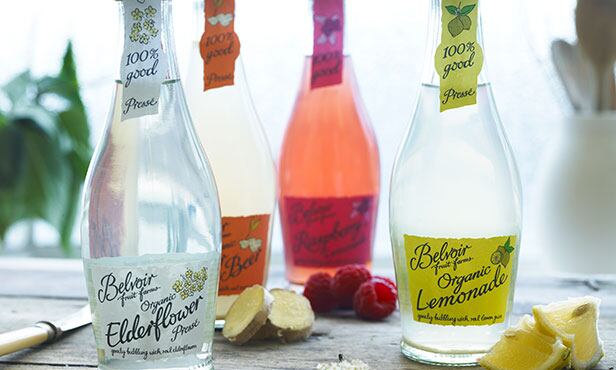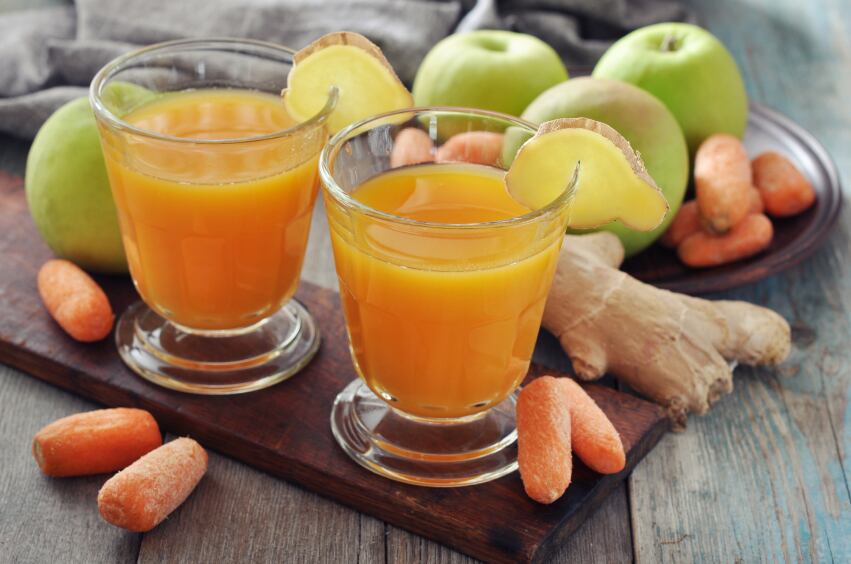Overseas sales for the segment amounted to more than £65m in 2013 – with orange juice accounting for £32m of this and fruit or vegetable mixes £15.6m, according to HM Revenue and Customs data released by the UK government’s Department for Environment, Food and Rural Affairs (DEFRA).
The increase – which saw the UK exporting juice to 96 countries including fruit producers Spain, Italy, Brazil and the US – meant the UK stepped into fourth juice exporter place in the European Union.
However Chris Brockman EMEA food and drink research manager for Mintel, said while Britain did innovative and up-market drinks well, many brands still saw their export markets as 'side' businesses, something he said could be down to Britain's island trade mentality.
Like selling ice to an Inuit
Commenting on the new export figures, UK environment secretary Elizabeth Truss said: “It’s testament to the can-do attitude of our UK juicers that they’re selling orange juice to the likes of America and Spain, countries famed for their orange production – though given we’re already selling ice to Sweden and cheese to France it shouldn’t come as a great surprise.”
However it wasn’t all growth; tomato and grapefruit juice saw significant drops from 2010 to 2013 of 40.69% and 29.66%, respectively.
Brockman cited the examples of Belvior, Bottlegreen, Feel Good Drinks, Mangajo, Firefly and James White/Thorncroft as successful British juice brands. “They sometimes trade a bit

on their Britishness but its more about just being modern, upmarket – sometimes a bit quirky – drink brands that can create space to sit in foreign retail markets and offer something different.”
However he said export figures shouldn’t be overstated as the main bulk of this was still commodity-type orange and apple juice, not the high-end power brands.
Star pupil
DEFRA also pinpointed UK fruit juice and cordial company Belvoir Fruit Farms as a good example of export growth, with its sales up 60% from 2013 to 2014 to £2.6m.
The company exported to Europe, Scandinavia, America, Canada, the Middle East and South East Asia, with its US sales doubling in the last year. It was now expanding to Austria, Slovakia, France and South Korea.
Peter Webster, Belvoir’s head of international, said: “Export sales worldwide are becoming increasingly important to the Belvoir business, driven by our signature Elderflower Pressé which still makes up the largest proportion of all of our global sales and is soon set to be our number one product in the US.”
Export as a 'side' business
Brockman said British firms tended to harbour the bad business habit of seeing their export channels as a ‘side’ business, lacking the “ingrained trading mentality” of many continental European markets.

“In part that's due to our island mentality, but also due to the fact that we have a very competitive and demanding domestic market that most producers can't afford to take their eye off.”
Mixing it up
Brockman said fruit juices and smoothies had been in a “vulnerable position” of late as public health campaigners pointed the finger for high hidden sugar contents, while mixing in vegetables could be a possible solution to this concern.
Mintel research suggested one in five shoppers limited the amount of fruit juice or smoothies they bought because of high sugar contents.
“Vegetables certainly seem part of the solution though. Manufacturers have looked to address the topic of the high sugar content in fruit juice by launching a variety of lower-sugar products such as blends with vegetable juice and diluted versions with a sweetener.”
Around 45% of fruit juice and smoothie consumers deemed fruit juice blends with vegetables to be healthier than standard products thanks to lower sugar contents, yet just one in ten consumers had tried them.
He said vegetable blends were increasingly seen by parents as a “stealth health” approach to getting their children to eat more vegetables. Indeed this group was twice as likely to drink fruit-vegetable blends as non-parents.
